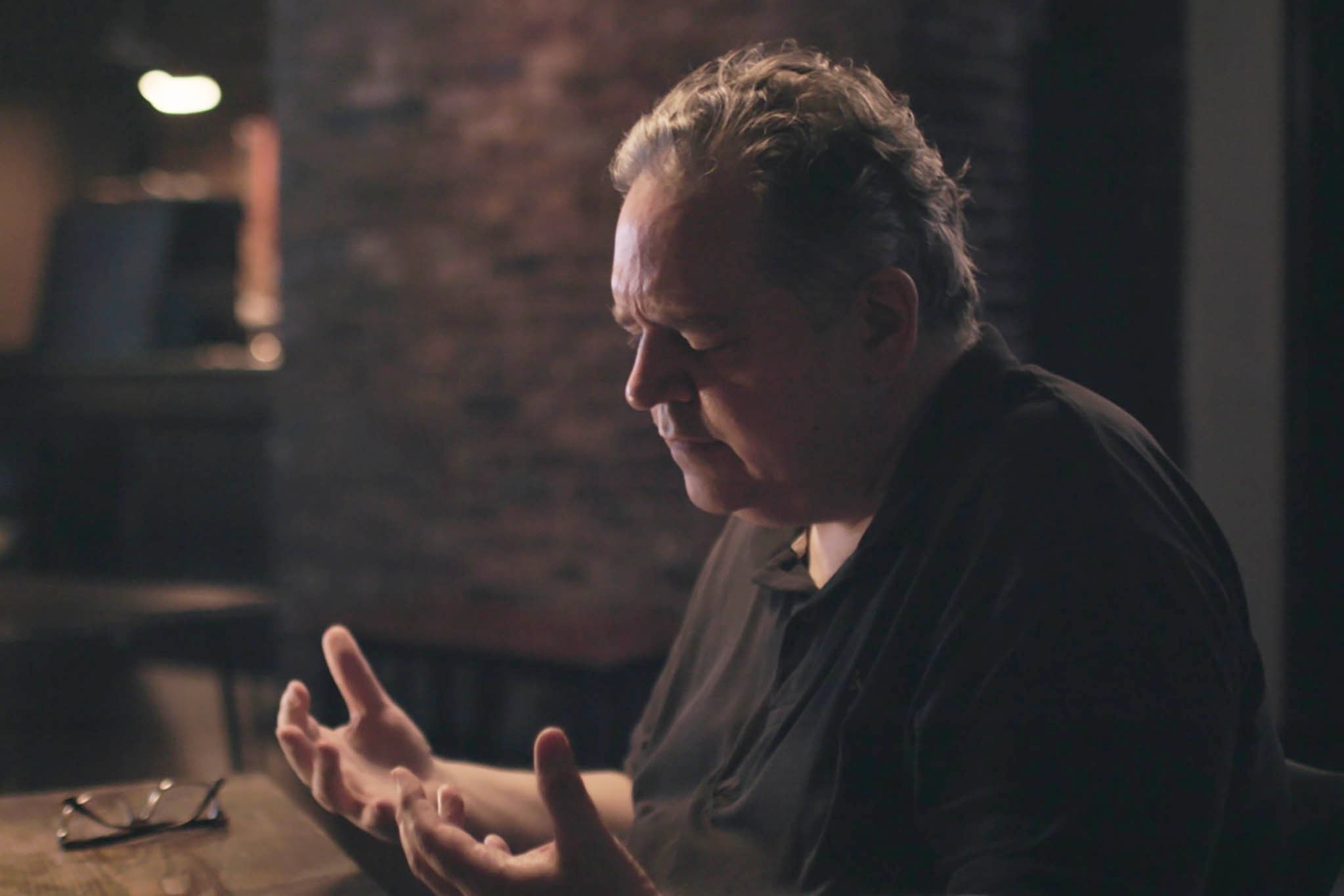The Independent's journalism is supported by our readers. When you purchase through links on our site, we may earn commission.
There’s a reason people like me visit psychics – whether they’re genuine or not
A new documentary from the filmmaker Lana Wilson explores the emotionally fraught relationships between spiritual mediums and their clients. Lydia Spencer-Elliott, who regularly speaks to an energy healer over WhatsApp named Bernice, chats to Wilson about why more of us than ever are seeking answers from the other side


Your support helps us to tell the story
From reproductive rights to climate change to Big Tech, The Independent is on the ground when the story is developing. Whether it's investigating the financials of Elon Musk's pro-Trump PAC or producing our latest documentary, 'The A Word', which shines a light on the American women fighting for reproductive rights, we know how important it is to parse out the facts from the messaging.
At such a critical moment in US history, we need reporters on the ground. Your donation allows us to keep sending journalists to speak to both sides of the story.
The Independent is trusted by Americans across the entire political spectrum. And unlike many other quality news outlets, we choose not to lock Americans out of our reporting and analysis with paywalls. We believe quality journalism should be available to everyone, paid for by those who can afford it.
Your support makes all the difference.What will I regret on my deathbed? Do my birth parents wish they hadn’t given me up for adoption? Will I ever own chickens? These are just a handful of the wide-ranging questions asked by yearning clients to a group of New York psychics, who feature in Lana Wilson’s new documentary Look Into My Eyes.
Of the dozens of individual sessions included in Wilson’s film, regrets, uncertainties and nagging questions are addressed with varying degrees of success. One woman looking for relationship advice is emotional to hear her late grandmother is “in the room” during her session – and still disapproves of her husband. Another client is informed that her grandmother’s spirit is present at her reading. The woman wearily responds that, in fact, both of her grandmothers are very much alive. For all the eerie hits, there are just as many uncomfortable misses.
“Are they actually connecting with ghosts or having a shared experience of make-believe?” asks Wilson when we connect – non-psychically – over Zoom. “In the end, it doesn’t actually matter. They are sitting down with a complete stranger and trying to take that person on an emotional journey that changes them in some way. As humans, we have this need to connect to each other. When it does happen, it feels like magic.”
Interest in spirituality is booming. Over a quarter of those in the UK believe in the existence of “gifted people” who can see parts of the universe that are hidden from others. Meanwhile, 23 per cent of the population have admitted to having consulted a psychic on their life dilemmas.
I first saw a medium back in 2019. She was a leopard-print-wearing woman called Elizabeth who lived in Swanley, and her number was passed to me in a pub on the back of an envelope. Since then, spiritual readings have largely become much less cloak and dagger. On TikTok, tarot card readers are doing big business, raking in billions of views on #TarotTok by telling users looking for financial or romantic assurance exactly what they want to hear. Simultaneously, Gen Z-friendly psychic databases like Keen boast “14 million satisfied customers”. I regularly send voice notes to an energy healer called Bernice. And, if you’re willing to pay upwards of £100, you can even see a psychic while shopping at Selfridges.
A “lifelong sceptic” of religion and spiritual practices, Wilson was drawn to the psychic world after spontaneously visiting a medium the morning after the 2016 US election. “Depressed and heartbroken” by Trump’s victory, Wilson paid $5 (£3) for a reading and immediately felt calm. “I felt this flash of clarity,” she remembers. “I was looking in a mirror at my own internal state at that moment. It wasn’t about believing or not believing what she was saying. It was that I had this comforting experience with a complete stranger.”
Every psychic in the film is very sincere about what they do. That’s what we were looking for. A mixture of sincerity and a willingness to be introspective and [doubtful] about doing the work
The psychics in Wilson’s film take on boundless amounts of trauma from their clients – all of whom are at some kind of crossroads in their lives – and offer compassion in return. We watch them hear about miscarried pregnancies, friends who’ve taken their own lives, parents who’ve died from alcohol and drug addiction. “I’d written off psychic readings as something very silly and dilettantish,” Wilson says. “But ultimately, I realised, this work is like religion, art, or therapy. It’s a vehicle for processing grief. We’re living in a world that is so full of such senseless horror and tragedy. So, how do you cope and move forward? People were asking questions [to mediums] they just would not talk about with a therapist.”
In one scene, a paediatric surgeon reveals she has been thinking every day of the 10-year-old girl whose life she tried to save after she was shot in the head in a drive-by shooting. The surgeon was at the very beginning of her career when the incident occurred, and she never felt she could discuss it with her colleagues. But across the table from a medium in a low-lit city apartment decades later, she feels emboldened to ask: “How is she?” Within minutes, the psychic holds the crying doctor in her arms. “She was a healer that needed healing,” Wilson says. “It’s startling – a woman of science taking for granted that there’s an afterlife. It speaks to the lack of spiritual support we have in our culture outside of the mainstream religions.”
Of course, not all psychics are created equal. As Wilson and her team spoke with over 150 self-proclaimed mediums across New York City on Zoom during the pandemic – to select the ones ultimately appearing in the film – they began to steer away from exploitative psychics who “focused on making money”. Instead, they gravitated towards those who offered generously long appointments that felt more akin to therapy sessions. “Every psychic in the film is very sincere about what they do,” says Wilson. “That’s what we were looking for. A mixture of sincerity and a willingness to be introspective and [doubtful] about doing the work.”
The film also spotlights how psychic “powers” can ebb and flow between readings. One psychic, for example, responds to a stark misread of a client by explaining that he just felt tired. “I never fully believe in the things I say,” he later tells the camera, adding that he wants his readings to be right just as much as his clients do. “When I fail, I’m like, ‘Oh, I suck and this isn’t real’... It just doesn’t feel great.”

When it comes to correct predictions, you could chalk up a lot of it to “The Barnum Effect”, a psychological phenomenon in which people accept vague statements as deeply applicable to their own lives. But if every reading I’ve ever had has been a performance, then they were Oscar-worthy. And yes, maybe I am willingly gullible. But only because mediums provide something valuable by handing others the confidence to navigate the chaos of everyday life. As Look Into My Eyes and the ever-growing popularity of online mediums exhibit, a psychic is – once you really boil it down – just someone to talk to.
Wilson posits that an experience with a psychic can be authentic and a performance at the very same time, likening readings to the constructed “emotional reality” of cinema, or improv theatre. “People are feeling something that’s helpful to them,” she says. “Regardless of whether you think a ghost is really in the room or not.”
‘Look Into My Eyes’ is screening at the BFI London Film Festival, and will be released at a later date
Join our commenting forum
Join thought-provoking conversations, follow other Independent readers and see their replies
Comments